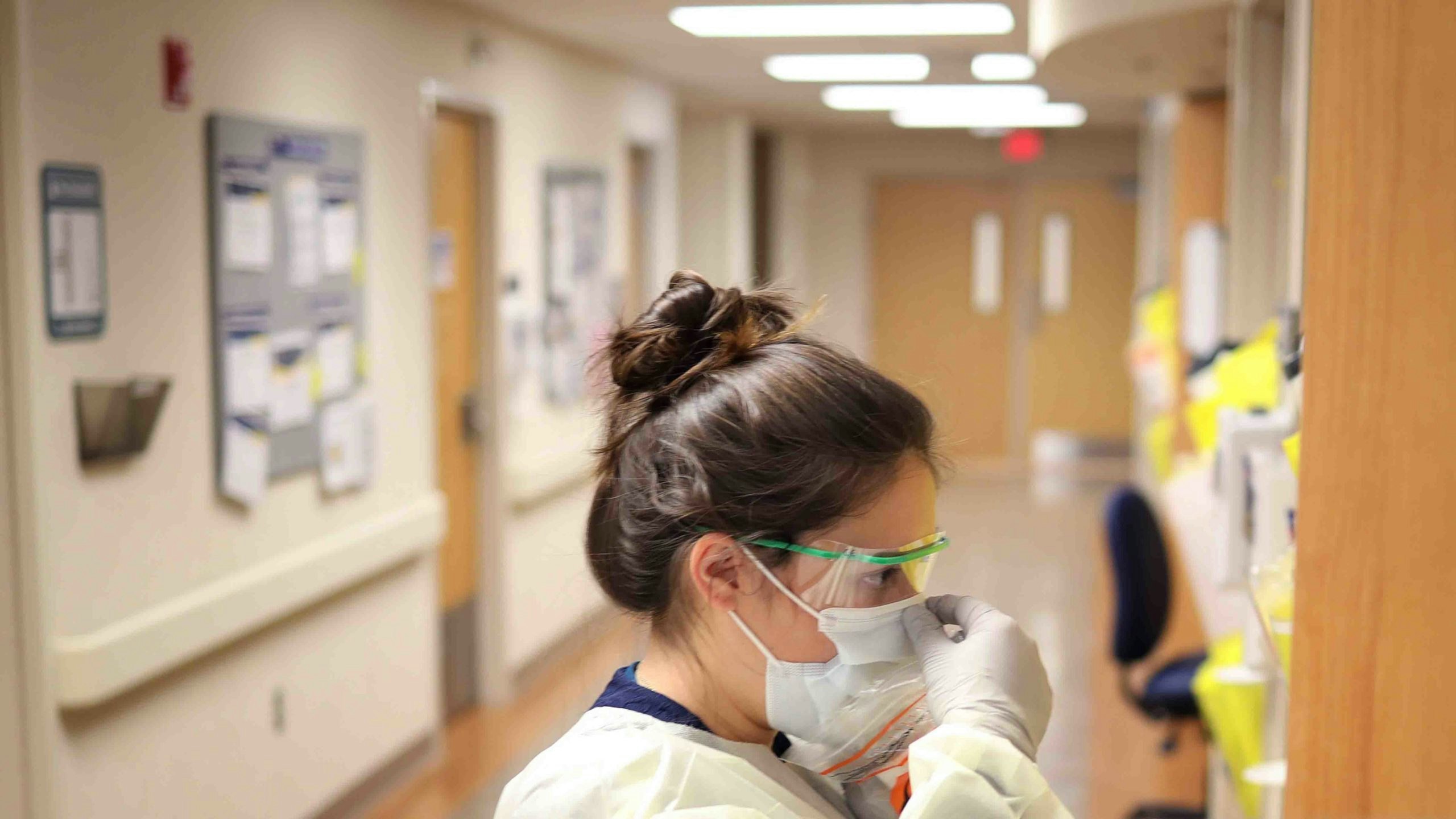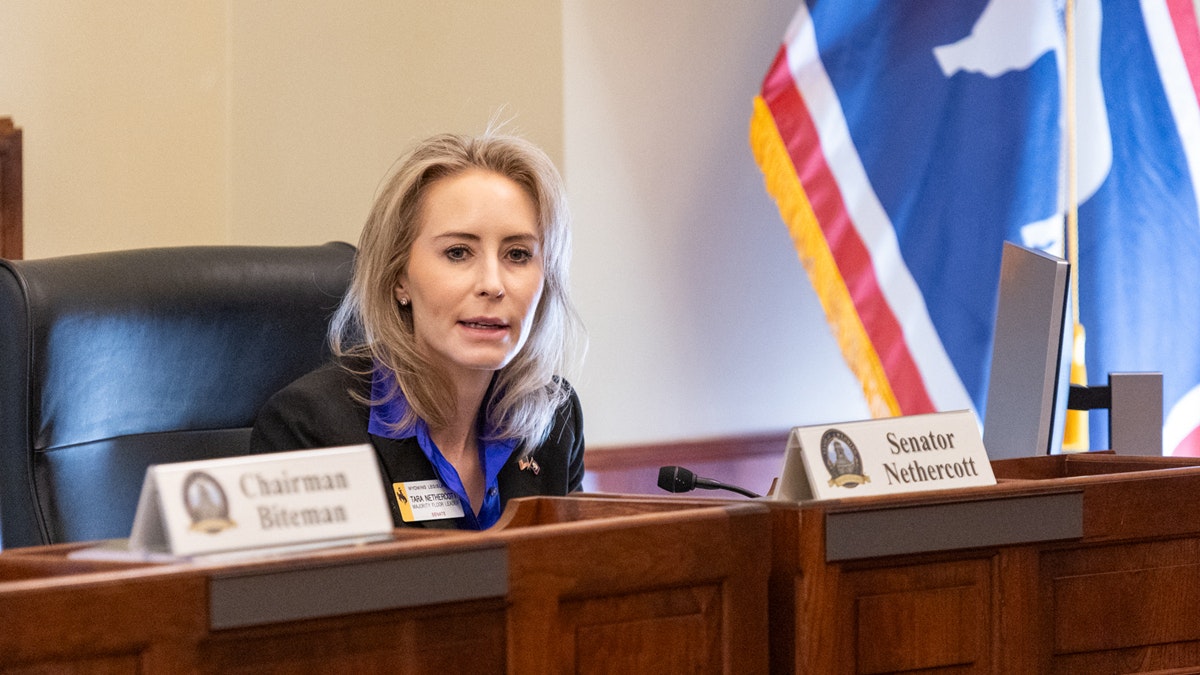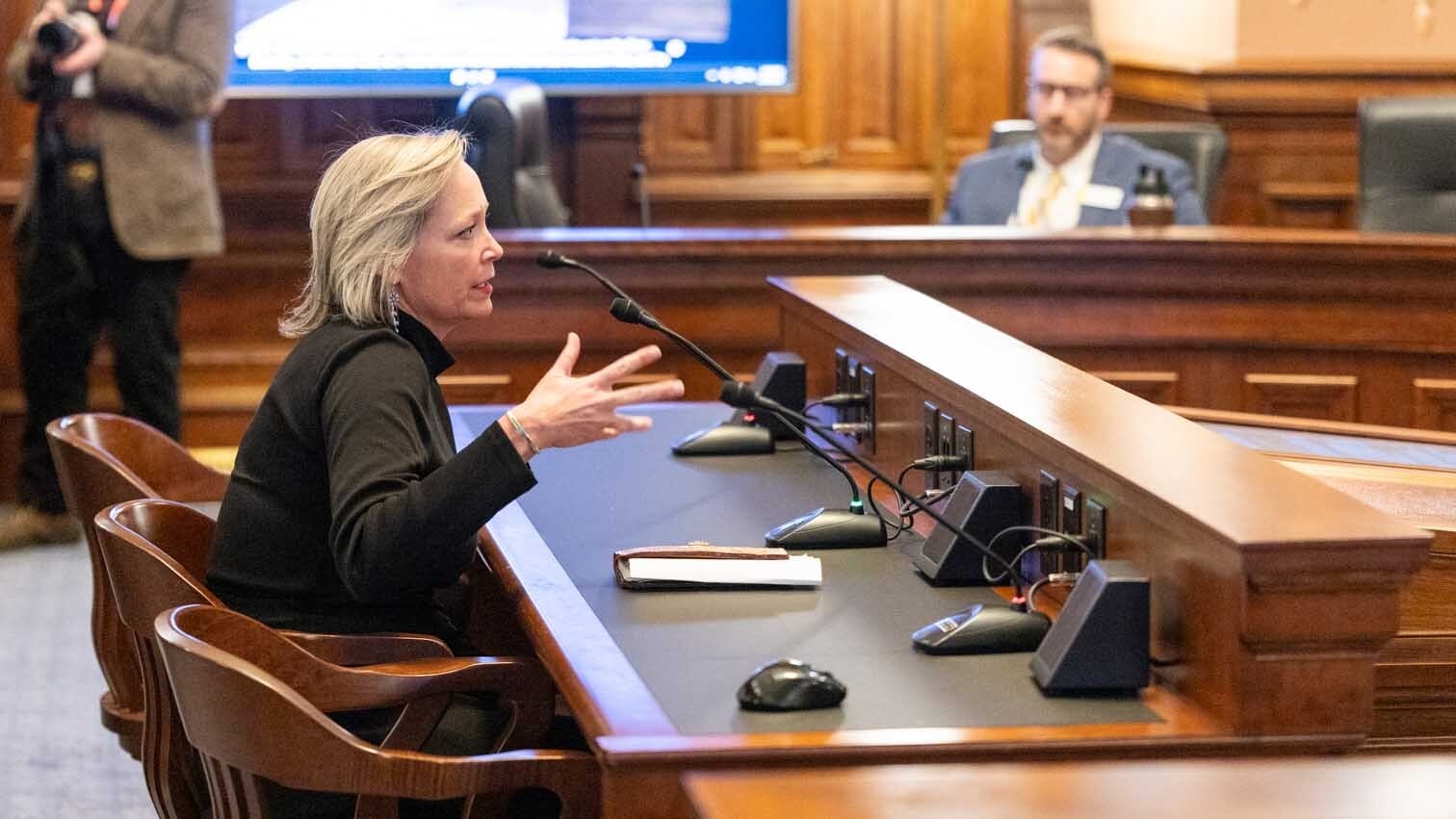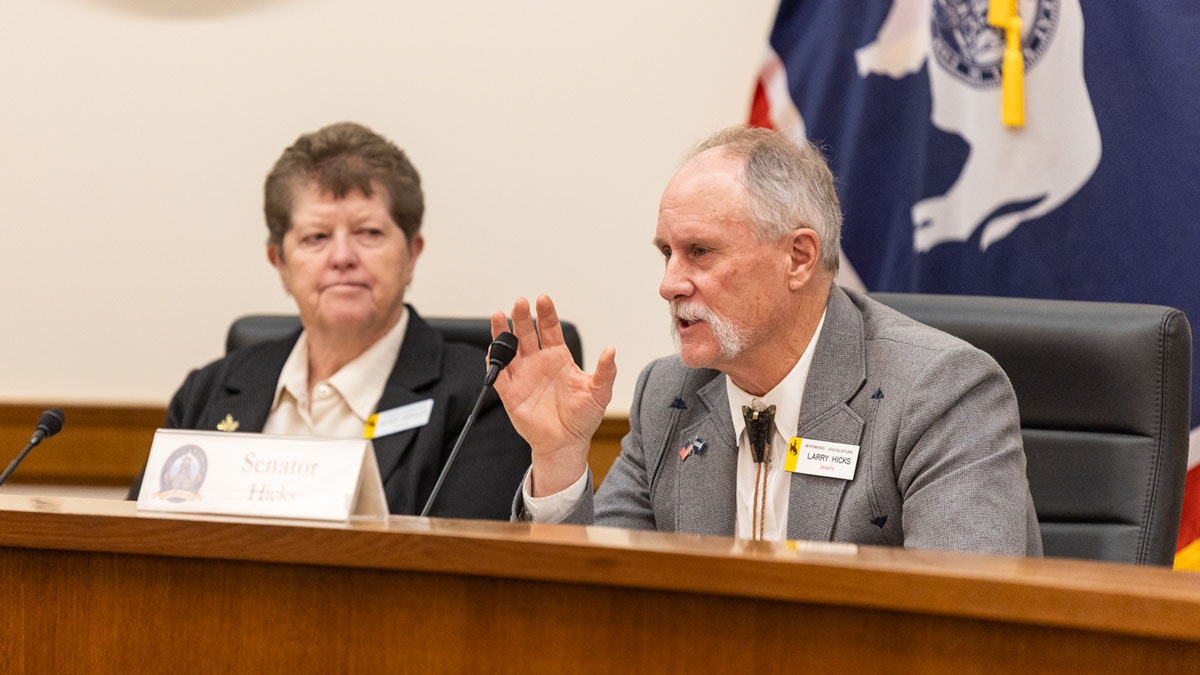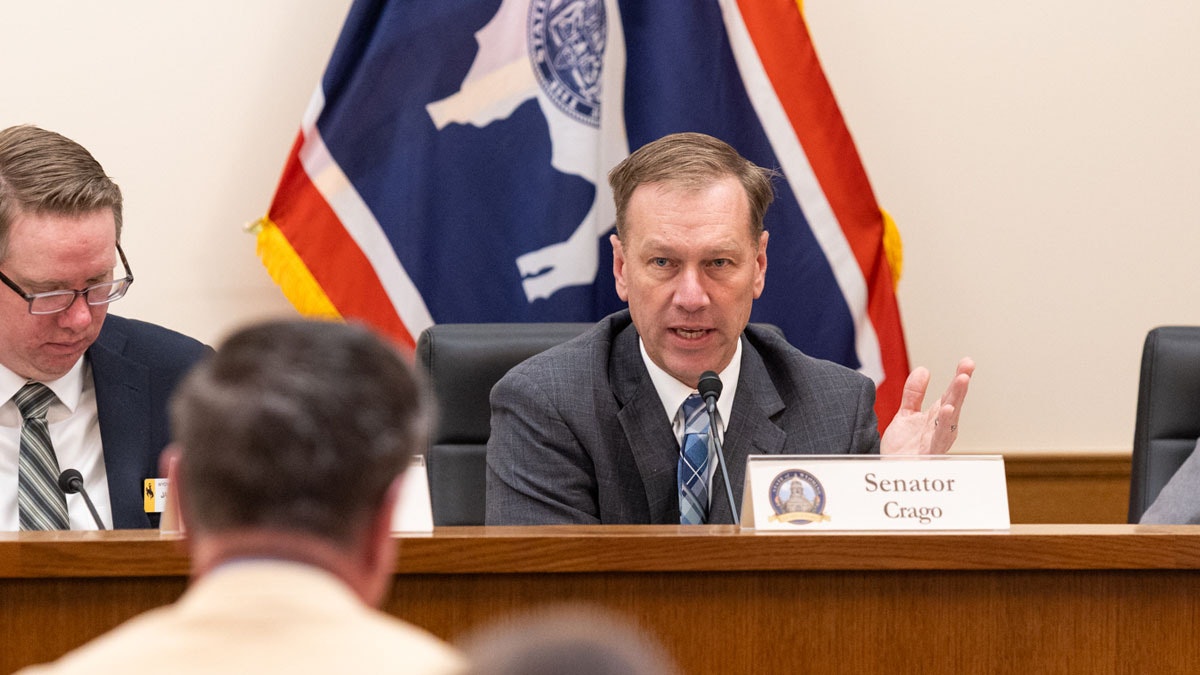The Wyoming Department of Health wants to up its game in offering incentives for potential workers to fill critical roles in the department.
On Monday, Department of Health Director Stefan Johnasson presented his $2.2 billion budget proposal to the Joint Appropriations Committee, which includes $500,000 for a new program that would reimburse tuition for staff who take hard-to-fill positions, including nurses, direct support professionals, as well as other clinical and administrative roles.
The tuition would be reimbursed after employees start working for the state.
Employee shortages in health care are a well-documented problem in Wyoming, which increased significantly after the COVID-19 pandemic.
The problem hasn’t eased in the years since, and Johansson said this year he saw numbers of unfilled jobs across the state’s aging, behavioral health, health care financing and public health facilities, reaching a 60% nurse vacancy at the Wyoming State Hospital in January.
The program would be primarily focused on reimbursing nursing education tuition, with an estimated 10 recipients awarded per year.
Recruitment
The purpose of the program is to help the state improve its prospects for filling openings and retaining staff. Johansson said his department has had more luck building up its own staff rather than recruiting out-of-state prospects or people working in other industries.
“Folks will work in health and human services, work for the state of Wyoming safety net facilities more if they see that upward mobility and joining them and investing them in their career and future,” Johansson said.
He mentioned how the head of the state’s retirement center started in housekeeping and gradually worked her way up through the system including earning a degree of her own.
“It’s one of the biggest success stories we have from the Department of Health from the past year or two,” he said.
The state already has a one-time hiring bonus for the most needed members of the critical care workforce. It also offers educational leave for certified nursing assistants (CNA) at the State Hospital who want to get their nursing degrees. That allows CNAs who are hired as full-time employees to spend half of their working time to pursue their nursing degrees. Employees who participate in the program must sign a three- to five-year contract and pay any owed fees to the state if they leave early.
The new proposed program would, for instance, pay for a CNA to become a registered nurse (RN) or even a licensed practitioner nurse (LPN). Johansson said both degrees typically run $8,000 to $20,000 for tuition.
“This is something that would be new but would be a tool that I would have in my toolbox, especially the facilities and field offices, to provide upward mobility and educational support for our staff … that are providing these safety net services,” Johansson said.
Money for this program would be managed by the Department of Health rather than individual facilities, Johansson said, to prioritize money getting distributed to the most critical areas for nursing shortages.
“To try and have a long-term strategy to try and educate those folks and build our own, so to speak,” he said.
With each year of additional employment service, an employee could qualify for additional tuition reimbursement.
The reimbursement program would start with $500,000 for the upcoming 2025-2026 biennium. Gov. Mark Gordon has said he supports the request.
State Sen. Tara Nethercott, R-Cheyenne, co-chair of the Appropriations Committee, said she believes the proposal will result in higher educational attainment and retention of staff.
“I think this is a great idea, and I think if Hathaway (Scholarship) had been structured this way, we’d see more successful results coming out of the university by providing tuition reimbursement,” she said.
Budget Picture
Johansson listed the funding request relatively low on his list of priorities within the department’s overall budget.
The department is requesting a $121 million total bump in its general fund request, putting it at around $7 million more than its previous level of funding before cuts were made to the department in 2021. Gordon has recommended a smaller allocation of around $101 million.
Johansson also mentioned Monday there were cuts made to certain services in 2021 that are not being asked for again.
He said his department will likely enter the upcoming biennium with an additional $20 million to $30 million in savings carried over from the previous fiscal year.
It will be up to the Appropriations Committee and Legislature to decide how it wants to move forward with the department’s funding requests in the upcoming 2024 legislative session.
Other Asks
On Monday, Johansson made an additional request for continued funding of the state’s postpartum Medicaid program. The department neglected to include this request in its $2.25 billion budget, a mistake Johansson took responsibility for.
The 2023 bill creating the extension appropriated $1.9 million in general funds and $1.9 million in federal money from the 2024 fiscal budget year budget.
The new funding request would affect the department’s 2025-2026 budget with $3.8 million each in state and federal money.
Leo Wolfson can be reached at leo@cowboystatedaily.com.

